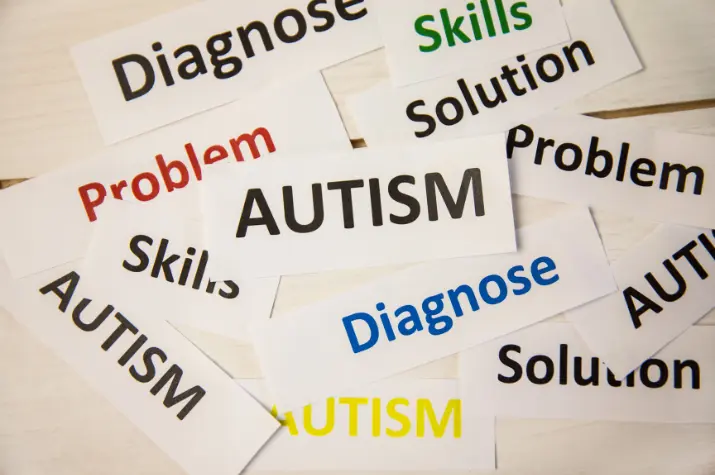
Autism spectrum disorder (ASD) is a neurodevelopmental condition distinguished by variations in social communication and behavior.
Although considerable emphasis has been placed on early intervention and assistance for children with autism, it is equally essential to consider the mental health requirements of adults within the autism spectrum.
This blog will delve into the convergence of autism and mental health in adult life, illuminating the distinctive obstacles and prospective remedies.
Understanding the Connection
Mental health and autism are intricately linked. Many adults with autism experience co-occurring mental health conditions, such as anxiety, depression, obsessive-compulsive disorder (OCD), attention deficit hyperactivity disorder (ADHD), and sensory sensitivities. These conditions can significantly impact an individual’s well-being and daily life.
The Challenges

Anxiety and Social Anxiety
Social anxiety is a common challenge for adults with autism. The desire to connect with others may be present, but the fear of social interactions can be overwhelming. Individuals with autism may worry about being judged, misinterpreted, or rejected in social situations.
If you think that you might have autism, which is making your anxiety worse, you can get an autism test online from Autism360. They will be able to help you through any diagnosis and provide advice for moving forward.
Depression
Depression is another common mental health concern that affects adults with autism. The challenges of navigating a neurotypical world, facing communication difficulties, or experiencing social isolation can contribute to feelings of sadness and hopelessness.
Sensory Overload
Sensory sensitivities are a hallmark of autism. Everyday sensory experiences, which most people find tolerable, can be overwhelming for individuals with autism. This sensory overload can lead to anxiety, stress, and emotional distress.
Coping Mechanisms
Some adults with autism develop coping mechanisms that, while initially helpful, can have negative consequences for mental health. For example, individuals may use repetitive behaviors or routines to manage anxiety, which can lead to isolation and limited flexibility.
Instead, there are apps for people with autism, as advertised on androidpolice.com, which can help with skills and create better coping tactics.
The Importance of Support

Support and intervention are essential for promoting mental health in adults with autism.
Here are some strategies and considerations:
Early Intervention
Early intervention for mental health is crucial. Identifying mental health concerns in their early stages can lead to more effective treatment and support. Regular mental health check-ins can be beneficial.
Sensory-Friendly Environments
Creating sensory-friendly environments can reduce sensory overload and anxiety. This can include providing quiet spaces, using soft lighting, and minimizing sensory triggers.
Medication
In certain instances, medication may be recommended to address concurrent conditions, such as anxiety or depression. It is crucial to engage in a consultation with a healthcare professional to ascertain the suitable treatment regimen.
Education and Advocacy
Educate family members, friends, and coworkers about autism and its impact on mental health. Encourage understanding and empathy in social and work environments.
Supportive Communities
Participation in supportive communities and autism advocacy groups can provide a sense of belonging and connection. Sharing experiences with people who share them or understand them can be incredibly validating.
Celebrating Strengths
It’s important to recognize that individuals with autism also possess strengths that can contribute to their mental well-being:
Unique Perspectives
Individuals with autism often have unique and insightful perspectives on various topics. Encourage the exploration of their interests and passions.
Conclusion
The intersection of autism and mental health in adult life underscores the need for a comprehensive approach to support and intervention.
Prioritizing mental health should be a universal concern, irrespective of neurodiversity, and with the appropriate support and resources, individuals with autism can experience enriching and purposeful lives.
About The Author:
Maggie Hammond. Proud mama to two little people, and has one too many furry friends. Passionate about alternative medicine, education, the great outdoors, and animal welfare.



![[Adult Acne] Common Causes, Remedies, and Best Treatments Adult Acne](https://www.safeandhealthylife.com/wp-content/uploads/2023/02/Adult-Acne-150x150.jpg)
